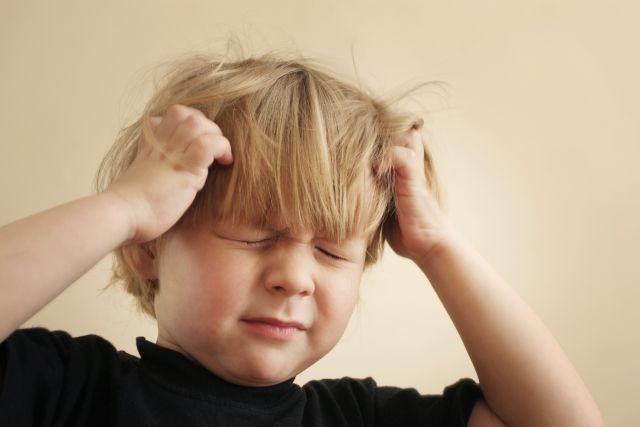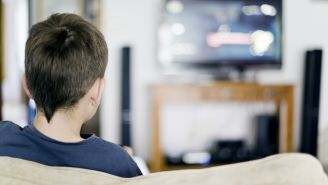Updated on January 27, 2022.
While kids are mingling in school, so are a bevy of germs and contagious conditions. Among the most obnoxious: head lice.
These annoying insects are most common in school-aged children. In fact, up to 12 million children aged 3 to 11 will likely contract lice each year, according to the Centers for Disease Control and Prevention.
Lice are not only common, but also difficult to get rid of. A 2016 review published in Pediatric Dermatology found that common over-the-counter (OTC) lice treatments containing pyrethroids—insecticides used to control pests—are growing less effective. Why? They've been used to kill lice for over 30 years, and the insects may have started to resist them. The study also noted that lindane, a shampoo used to treat scabies and lice, is potentially toxic. The good news: There are safer alternatives.
People with head lice should consult a healthcare provider (HCP) before heading to the drugstore for an OTC bottle of lice shampoo or cream, the researchers concluded.
Here's everything you need to know about these pesky creatures, including what they are, how they spread, and what you can do if your child brings them home.
What are lice?
The head louse, otherwise known as Pediculus humanus capitis, is a small parasitic insect that latches onto the head, eyebrows, and eyelashes. Lice can’t fly or jump, but they do crawl and hitch rides from one person to another. Although they don’t spread disease, the insects feed on human blood a few times a day and typically stay close to the scalp. Kids aren’t the only ones who may be infected; adults can contract head lice, too.
You or your child may spot lice in three forms: eggs (also called nits), baby lice (nymphs), or adults. It’s most common to see lice eggs—tiny yellow, tan, or brown speckles that look like dandruff. And after the eggs hatch, they may be easier to spot. Nymphs turn into adult lice one or two weeks after hatching.
Head-to-head contact causes them to latch on
While adults can catch head lice, preschool- and elementary-aged children in daycare or school are more likely to. Young children are at risk because they’re typically in constant contact with other kids—lunchtime recess, slumber parties, and overnight camps are all hot spots for contagion.
It's possible for someone to contract head lice from sharing clothing or other belongings like hats and brushes, but it’s not as common.
4 symptoms to watch out for
If the bugs have set up housekeeping on your or your child’s head, symptoms will likely include:
- Itchy scalp
- A tickling or crawling feeling
- Head sores from scratching
- Trouble sleeping, since head lice are more active in the dark
Effective medical treatments are available
If you or someone in your family has lice, your HCP will prescribe a medicated shampoo, cream rinse, or lotion to kill the insects. The itch may hang on for a few days after you start the medication. If topical (skin) treatments aren’t working, an oral medication may be an option.
For children aged 2 months and under, the insects will need to be removed by hand. Home remedies like petroleum jelly, mayonnaise, and essential oils shouldn’t be used to treat head lice. They’re not effective, can irritate the skin, and may make symptoms worse.
Instead, wet-combing, or repeated hair combing using a rinse, olive oil, or vinegar, may be effective for younger children. You’ll have to do it every three to four days for up to two weeks. Talk to your child’s pediatrician about the best treatment option.
In the past, children were kept home from school if they had lice. HCPs now recommend they go to school as usual and return home afterwards for treatment. School policies vary, however, so check with a school nurse or administrator. And remember, you and your child should steer clear of head-to-head contact with others.
4 ways to prevent infestation
Head lice don’t live very long if they fall off, since they cannot feed without a host. But if a family member gets lice, it’s still important to disinfect your home to prevent the bugs from spreading. Here’s what to do:
- Wash all clothing and bed linens used by the affected person in hot water, then tumble-dry the items using the hottest dryer setting.
- Take stuffed animals and any other items that can’t be washed to a dry cleaner or store them in airtight bags for two weeks.
- Vacuum all home and car carpeting, and any upholstered furniture. Throw away the vacuum cleaner bag afterward.
- Soak items like combs, hair ties, and brushes in hot water (at least 130°F) for 5 to 10 minutes.
3 tips to keep lice from spreading
Head lice don’t mean you or your child have poor hygiene. But you can adopt some habits to prevent them from latching on in the first place:
- Avoid sharing belongings like hats, scarves, coats, school uniforms, hair bows, barrettes, combs, brushes, towels, and stuffed animals. Wash items regularly.
- Avoid lying down on upholstered furniture like beds, couches, or carpets if someone with lice has used them.
- Check your family every three to four days, especially if they’ve come into contact with someone who has lice.
If someone in your family contracts lice, don’t panic. It may be unpleasant, but there are safe and effective treatment options. Just be sure to see your HCP as soon as you're aware of the insects.







